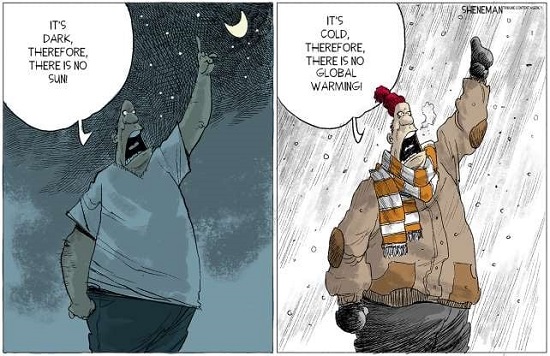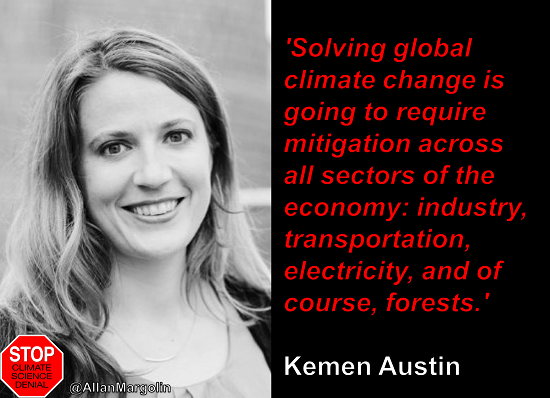
Story of the Week... Toon of the Week... SkS in the News... Coming Soon on SkS... Poster of the Week... SkS Week in Review...
That’s one of several recent conclusions about climate change that came more sharply into focus in 2020.
[Editor's note: The following is a repost of the final section of Berwyn's article]
Making it Stop
Some scientists punctuate their alarming warmings with hopeful messages because they know that the worst possible outcome is avoidable.
Recent research shows that stopping greenhouse gas emissions will break the vicious cycle of warming temperatures, melting ice, wildfires and rising sea levels faster than expected just a few years ago.
There is less warming in the pipeline than we thought, said Imperial College (London) climate scientist Joeri Rogelj, a lead author of the next major climate assessment from the Intergovernmental Panel on Climate Change.
“It is our best understanding that, if we bring down CO2 to net zero, the warming will level off. The climate will stabilize within a decade or two,” he said. “There will be very little to no additional warming. Our best estimate is zero.”
The widespread idea that decades, or even centuries, of additional warming are already baked into the system, as suggested by previous IPCC reports, were based on an “unfortunate misunderstanding of experiments done with climate models that never assumed zero emissions.”
Those models assumed that concentrations of greenhouse gases in the atmosphere would remain constant, that it would take centuries before they decline, said Penn State climate scientist Michael Mann, who discussed the shifting consensus last October during a segment of 60 Minutes on CBS.
The idea that global warming could stop relatively quickly after emissions go to zero was described as a “game-changing new scientific understanding” by Covering Climate Now, a collaboration of news organizations covering climate.
“This really is true,” he said. “It’s a dramatic change in the paradigm that has been lost on many who cover this issue, perhaps because it hasn’t been well explained by the scientific community. It’s an important development that is still under appreciated.” "It’s definitely the scientific consensus now that warming stabilizes quickly, within 10 years, of emissions going to zero,” he said.
Many Scientists Now Say Global Warming Could Stop Relatively Quickly After Emissions Go to Zero by Bob Berwyn, Science, InsideClimate News, Jan 3, 2020

Hat tip to the Stop Climate Science Denial Facebook page.
John Cook is quoted extensively in this article:
[Editor's note: We have asked InsideClimate News for permission to repost the above article in its entirety on this website.]

Dr Kemen Austin is employed by RTI International, an independent, nonprofit research institute dedicated to improving the human condition.
Dr. Austin is a senior policy analyst with more than a decade of experience translating scientific innovations into practical guidance for sustainably managing land resources, balancing trade-offs among multiple ecosystem services, and catalyzing low-emissions development. She has extensive experience in evaluating forest conservation and climate change mitigation programs using geospatial analysis, remote sensing, and economic and statistical models.
Dr. Autin's recent research has assessed global trends in industrial-scale agriculture, private sector sustainability commitments, regional biofuel standards, and national land use regulations. She has led successful interdisciplinary and international research partnerships with academic, civil society, and government researchers. She lived in Southeast Asia for four years and has worked on collaborative projects based in East Africa, the Congo Basin, and the Amazon Basin. Her research informs decision-making by international donors, national government agencies, and the private sector.
Posted by John Hartz on Sunday, 3 January, 2021
 |
The Skeptical Science website by Skeptical Science is licensed under a Creative Commons Attribution 3.0 Unported License. |